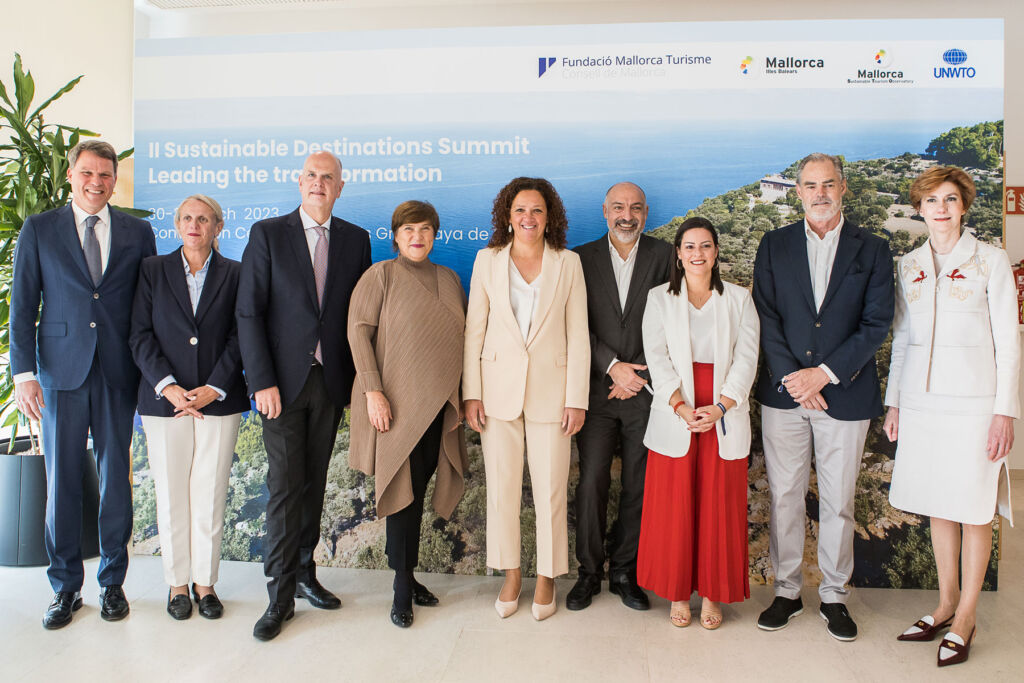
Mallorca just hosted the Sustainable Destinations Summit for the second year in a row, reflecting how this leading destination has successfully incorporated sustainability and circularity into its tourism strategies.
Following the resounding success of the first edition last year, the Fundació Mallorca Turisme del Consell de Mallorca, the Sustainable Tourism Observatory and the World Tourism Organization (UNWTO) just hosted the second edition of the Sustainable Destinations Summit on March 30 and 31 at the Hipotels Palma Congress Center.
At the gathering, knowledge was presented on best practices of environmental, social and economic sustainability developed by various institutional representatives and companies that lead sustainable initiatives on an international scale.
The President of the Government of Mallorca, Catalina Cladera and the Executive Director of the UNWTO, Zoritsa Urosevic, inaugurated the event for the some 400 attendees in person and online.
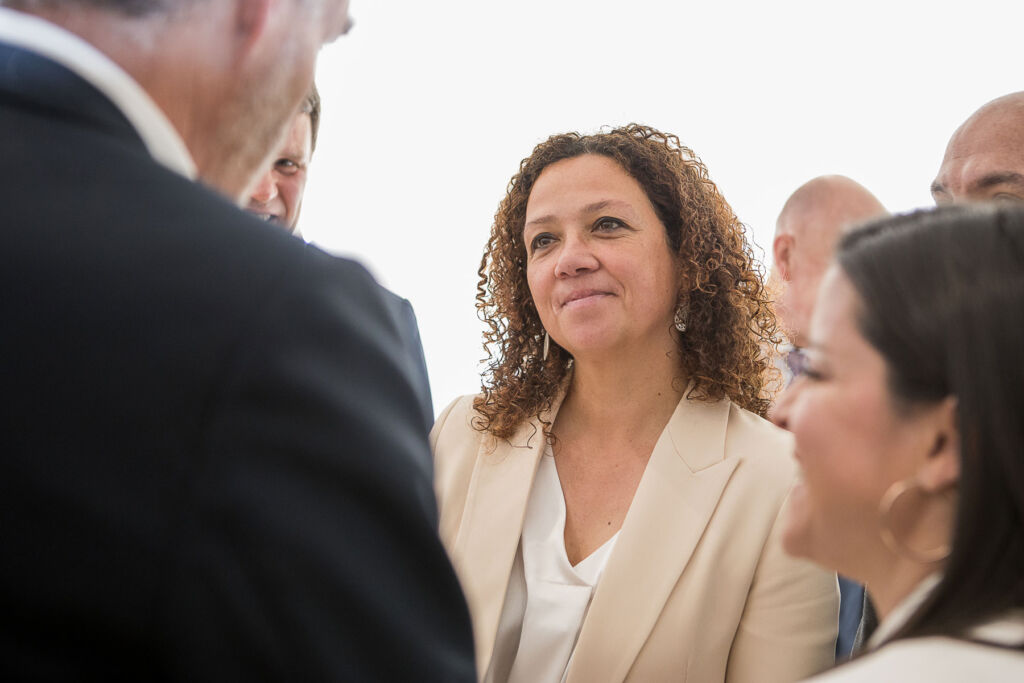
Cladera said during her speech that “sustainability is a shared will of Mallorcan society and the axis that marks all the policies of the Consell”. He also said that Mallorca and the rest of the Balearic Islands “are taking firm steps not only to continue being the reference destination in the Mediterranean but to lead tourism of the future.”

Urosevic emphasised the vital “transition of the sector to a force for good that has a positive impact on the Sustainable Development Agenda and our shared global challenges” and added that “if it is well managed, tourism can be an agent of change, but that transition to a green, regenerative and nature-positive tourism sector is necessary and can be achieved collaboratively”.
A large group of international experts discussed different topics through round tables that reflected on multiple and innovative perspectives such as indigenous, foreign or financial, as well as the catalytic destinations of sustainable and regenerative development; pre-competitive cooperation for sustainable actions; the implementation of circularity; certain data for management; governance models that reinforce sustainability; and several frameworks for action that drive transformation.
The Summit emphasised tourism as a force for good, with a drive towards a regenerative and positive future for nature.
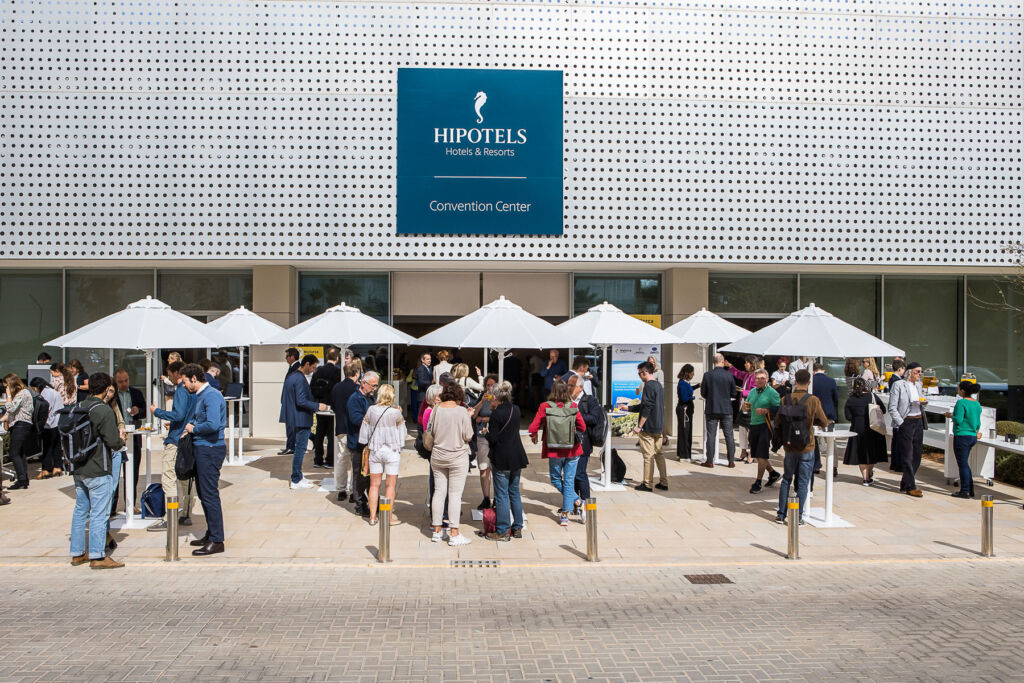
The forum featured round tables, talks and interviews with important figures from different fields related to tourism and sustainability, including the Spanish astronaut Pedro Duque and representatives of major tourism companies in the international arena, such as Gloria Fluxà, Vice President and Director of Sustainability, Iberostar; Sabina Fluxá Thienemann, Vice President and CEO, Iberostar Group; or Carmen Riu Güell, CEO, RIU Hotels & Resorts.
María Frontera, president of FEHM (Mallorca Hotel Federation), joined Carmen Riu Güell, owner of the RIU Hotels & Resorts, to discuss how to unite generational perspectives in the search for sustainable tourism development. They emphasised the importance of collaboration and circularity in the transformation of the sector.
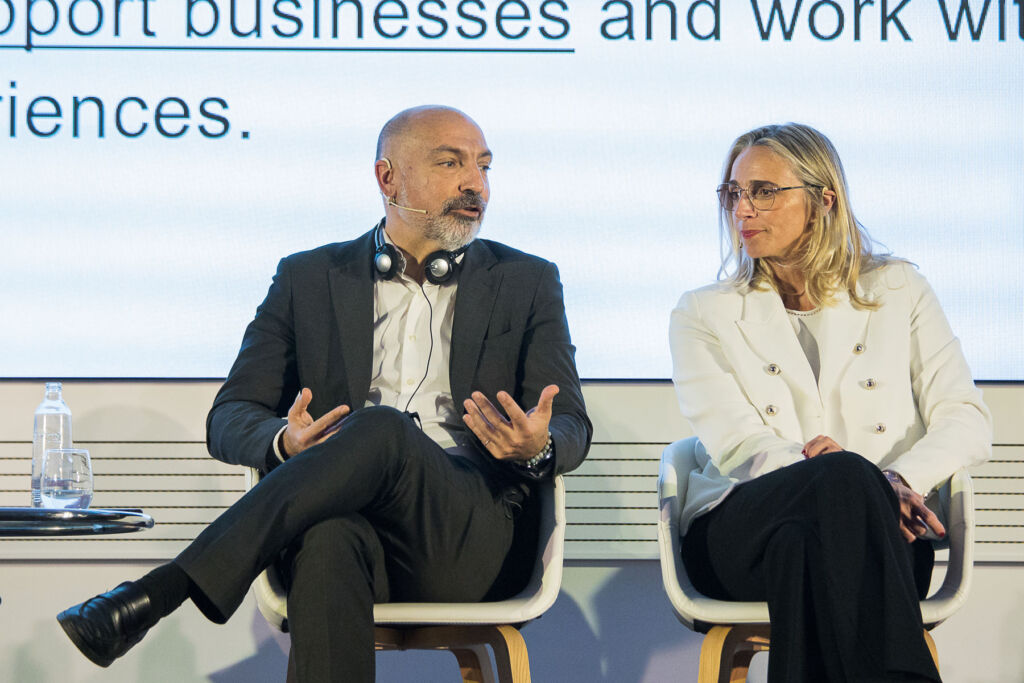
Likewise, Andreu Serra (above), Minister of Transition, Tourism and Sport of Mallorca, Mark Tanzer, Executive Director of ABTA, Miguel Sanz, General Director of Turespaña, and Thomas Ellerbeck, Member of the Executive Board of the Group and Director of Sustainability of TUI Group spoke about how destinations committed to sustainability can find a balance between marketing and storytelling.
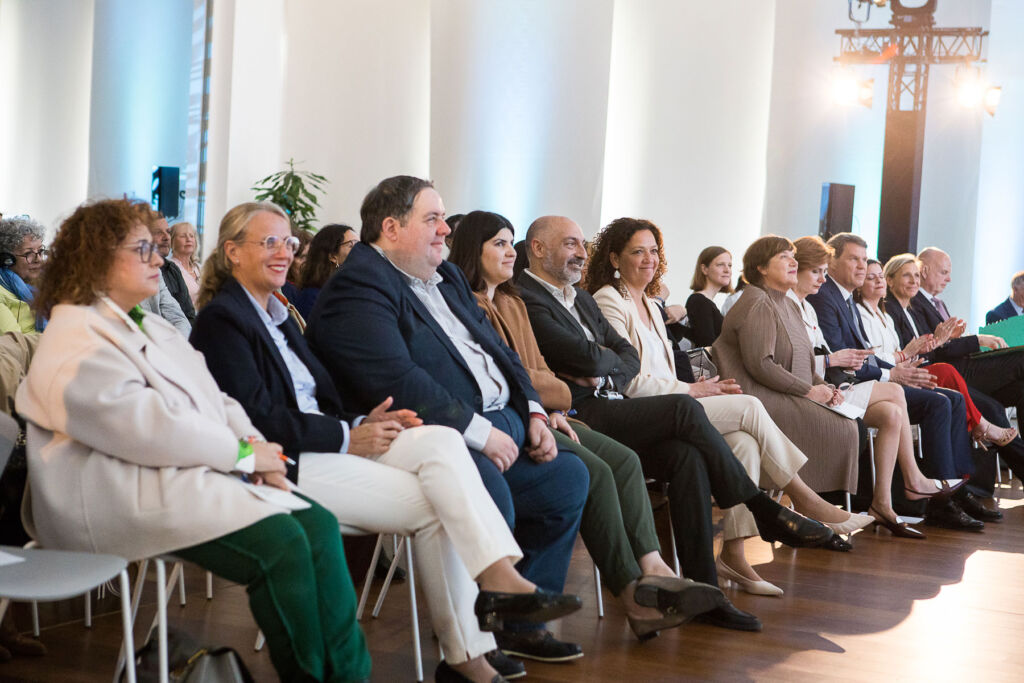
Wide variety of perspectives, one goal
Public and private sector; business, science and management; Space and ancestors. The Summit served as a forum for multiple perspectives and a wide variety of opinions, experiences, and strategies. Diversity was one of the main assets of this forum, while the objective was immovable: a sustainable sector to ensure the future of the next generations.
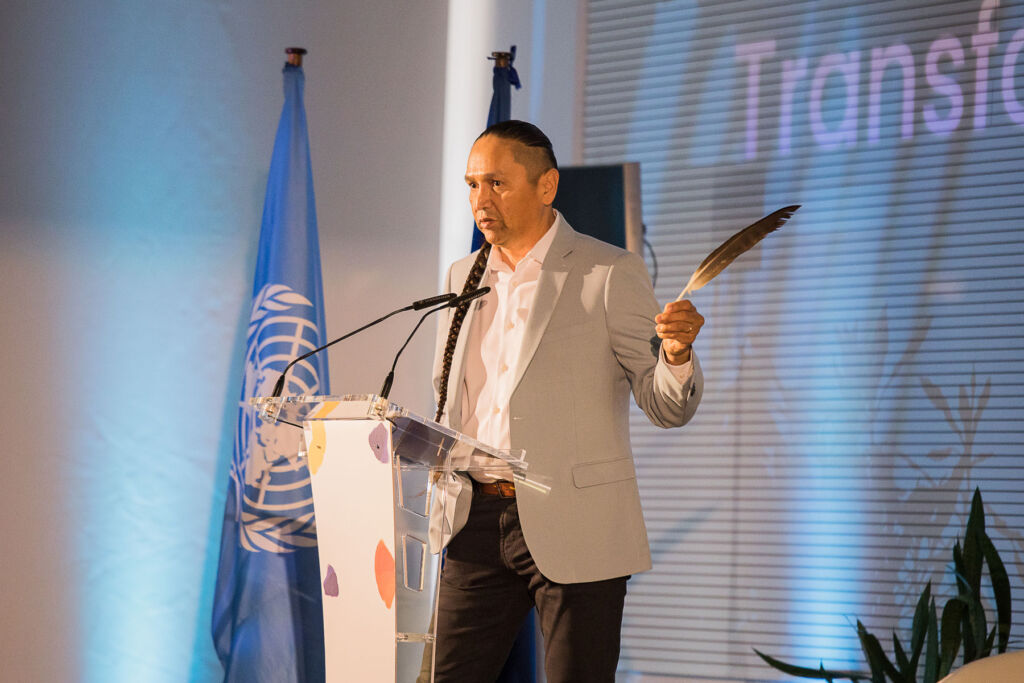
One of the most novel perspectives was the one provided by Chief Frank Antoine, Co-owner of Moccasin Trails in Okanagan Valley, Gold Country, Canada. Moccasin Trails is an initiative that perfectly combines tourism with respect for traditions, history and the natural environment.
Having been UNWTO collaborators for ten years, Chief Frank stressed that his strategy focuses on “the care of natural resources to live off our lands. The indigenous perspective focuses on knowing what our past is to work for a solid future.”
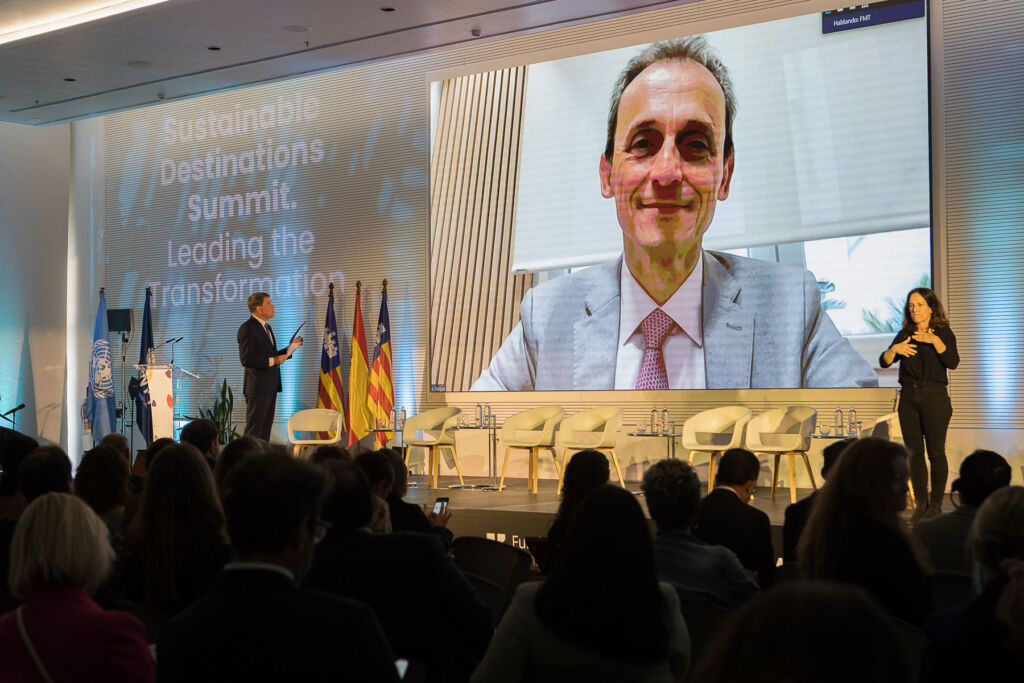
The Spanish astronaut Pedro Duque provided the perspective of a greater distance. Duque said that “From space, you can appreciate how valuable the Earth is. The most accessible way to see the world is to travel. Everything you see is your own home. What happens in one place on Earth has a direct impact on the whole world.”
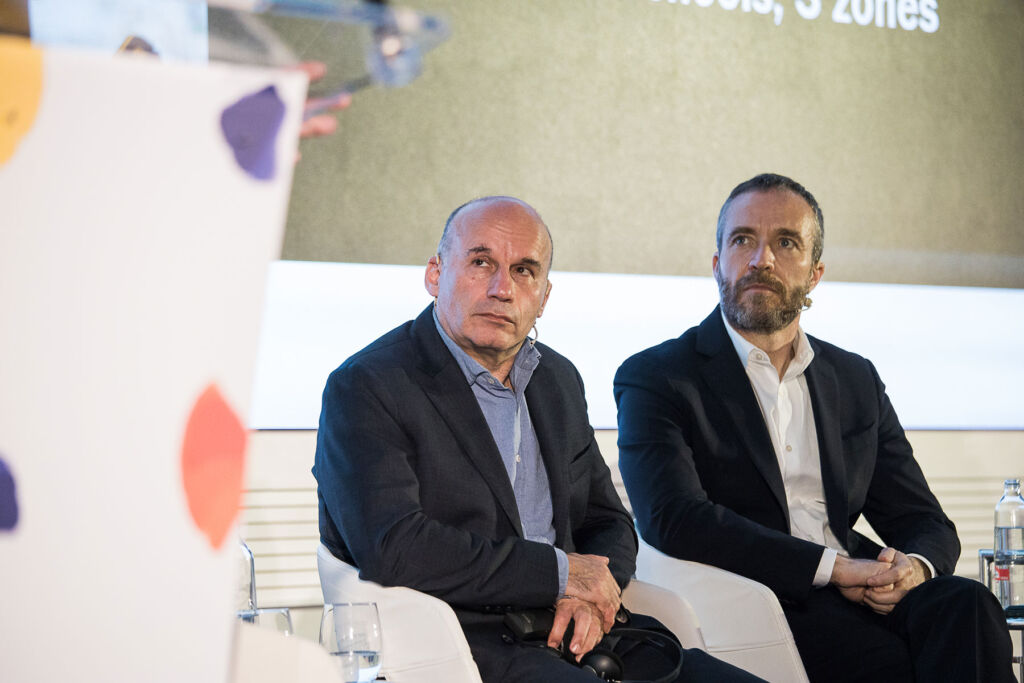
The CEO of ABTA, Mark Tanzer, spoke about the impact of tourism in the universe in general and announced that they have the objective of “reducing emissions to zero by 2050” and hope to do so thanks to “the work of private companies and public administrations”. This public-private union was one of the key points highlighted by the Minister of Tourism of Mallorca, Andreu Serra, who also focused on the “social dimension of sustainability for which the union of efforts is fundamental”.
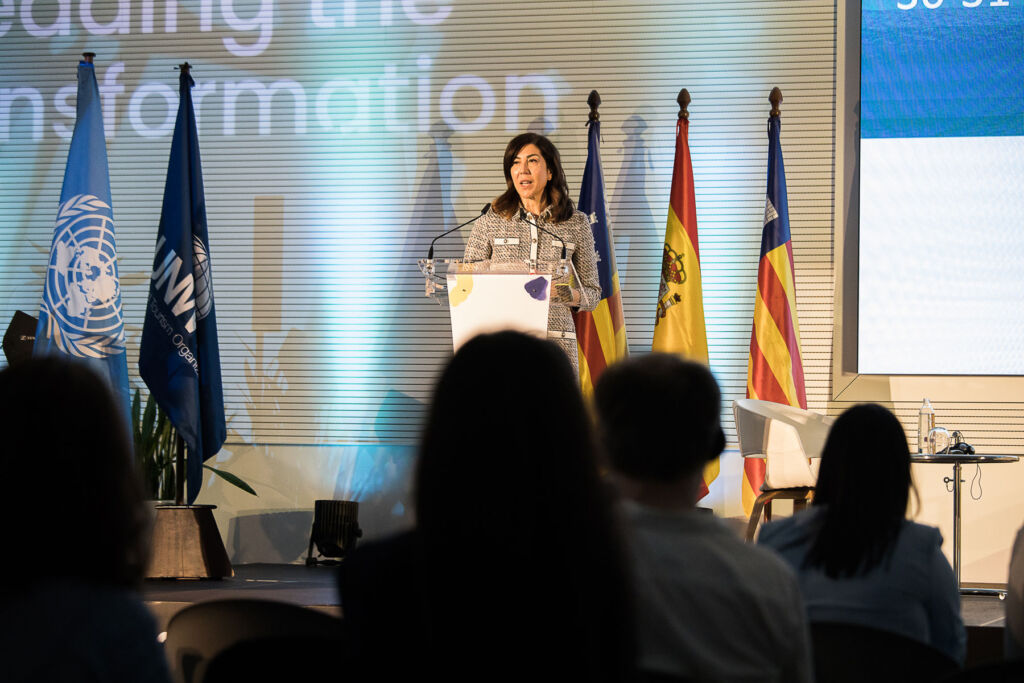
The Secretary of State for Tourism in Spain, Rosa Ana Morillo, agreed with all these perspectives and announced that “for the government of Spain, the fundamental tool will be the Circular Tourism Law and a strategy based on the growth of quality versus volume”.
For more information, please visit .
Read more travel news, guides and features here.
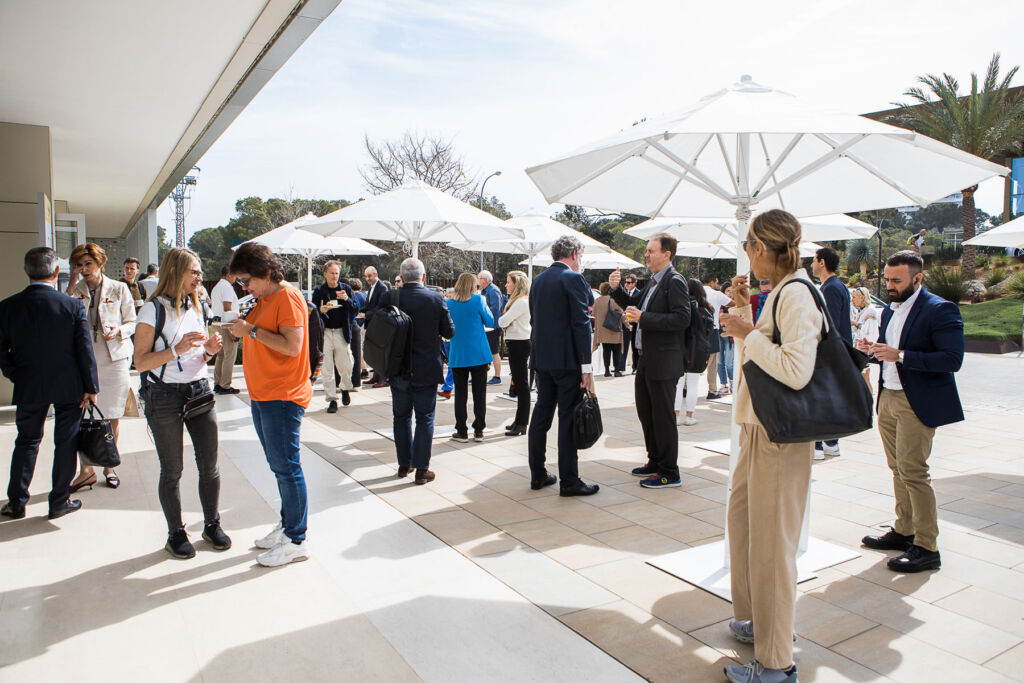
![]()

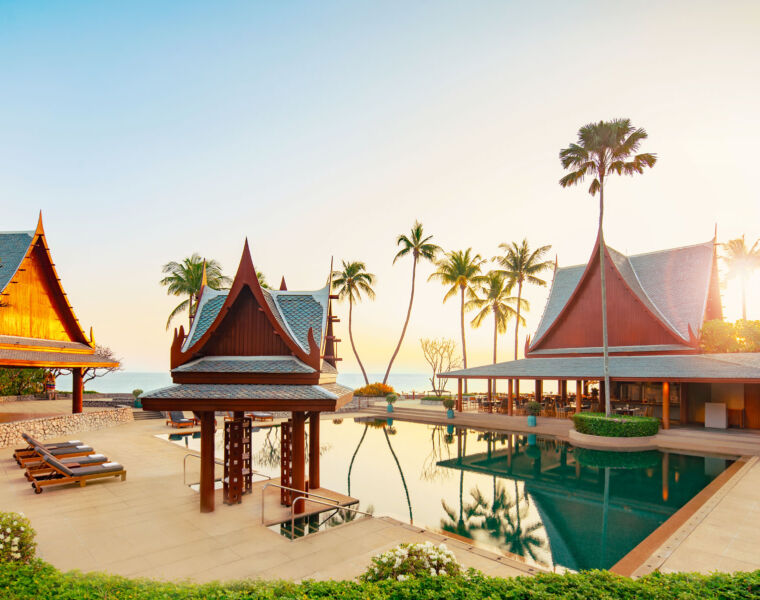


You must be logged in to post a comment.